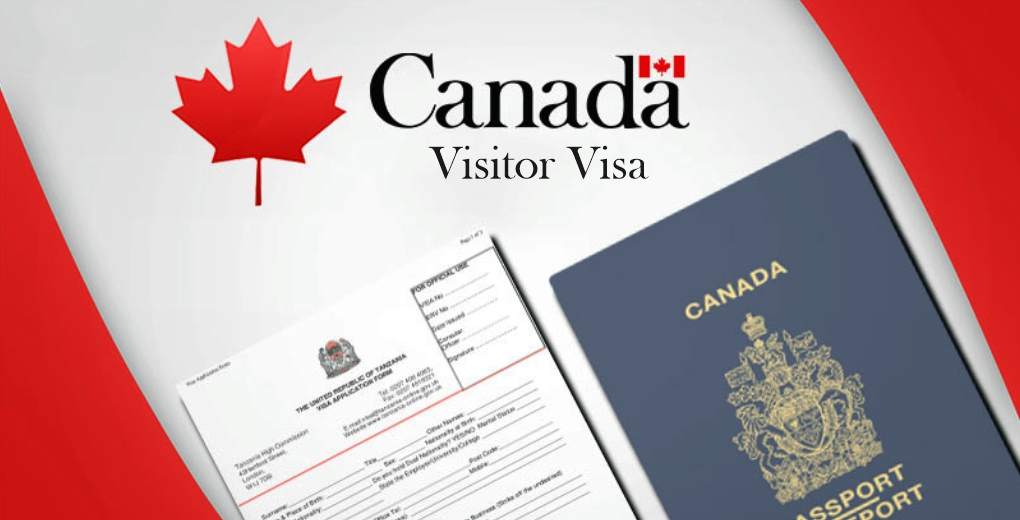Many Canadian families consider the immigration process of bringing parents or grandparents to Canada a significant emotional achievement. Your goal is a permeable and valuable visit experience for your family members while they stay in Canada. Among immigration choices for parents to visit Canada the question becomes clear: Should they pursue a Visitor Visa or a Super Visa?
What Is a Visitor Visa?
The temporary visiting authorization known as the Visitor Visa or Temporary Resident Visa (TRV) permits foreigners to stay in Canada for specific events such as tourism or family reunification and ceremonial occasions. People mostly select Visitor Visas to spend limited time in Canada.
Requirements:
To apply, your parents will need to:
– Show strong ties to their home country.
– Demonstrate financial stability.
– Prove they will leave Canada at the end of their visit.
Pros:
– Simple application process.
– Lower financial burden.
– Great for short, infrequent visits.
Cons:
– Limited stay (only 6 months).
– Need to apply for an extension if they wish to stay longer.
– Frequent renewals can become tedious and expensive.
What Is a Super Visa for Parents?
Under the Super Visa for Parents scheme Canadian permanent residents and citizens can welcome their parents and grandparents to stay in Canada for an extended two-year period without requiring any visa renewals throughout the duration.
Key Features:
– Stay duration: Up to 2 years per entry.
– Multiple entries: Valid for up to 10 years.
– Medical insurance required: Must have Canadian insurance coverage for at least one year.
– Medical exam: Mandatory as part of the application.
– Processing time: Usually around 8 weeks.
Who Can Apply?
To be eligible, applicants must:
– Be parents or grandparents of a Canadian citizen or PR.
– Provide a written letter of invitation from their child/grandchild.
– Show proof of financial support (meeting the Low-Income Cut-Off, or LICO).
– Undergo a medical exam and obtain one-year Canadian health insurance.
Pros:
– Longer uninterrupted stay (no extension needed for up to 2 years).
– Multiple entries allowed over 10 years.
– Better suited for elderly parents needing longer family support.
Cons:
– Higher upfront costs (insurance + medical exams).
– Stricter financial and health requirements.
Visitor Visa vs Super Visa for Parents: A Side-by-Side Comparison
| Feature | Visitor Visa | Super Visa for Parents |
| Stay Duration | Up to 6 months | Up to 2 years |
| Visa Validity | Up to 10 years | Up to 10 years |
| Health Insurance | Not required | Mandatory for 1 year |
| Medical Exam | Not usually needed | Required |
| Financial Proof | General financial stability | Must meet LICO minimum |
| Application Ease | Easier and faster | Slightly longer process |
| Best For | Short-term or one-time visits | Long-term stays or frequent visits |
How to Choose: What’s Better for Your Family?
Let’s help you answer the key question: Should you apply for a Visitor Visa or a Super Visa for parents?
Consider a Visitor Visa If:
– Your parents only plan to visit for a few weeks or months.
– You’re not ready to meet the Super Visa’s financial or insurance requirements.
– Their visits will be infrequent or just for special occasions.
Consider a Super Visa for Parents If:
– Your parents need to stay longer (up to two years per visit).
– You want to avoid frequent extension applications.
– You meet the LICO income requirements and can arrange Canadian health insurance for them.
Real-Life Example
Anita who resides as a permanent resident in Canada wishes to have her parents stay for six months annually. Anita must choose between applying for the Visitor Visa or Super Visa for Parents. Her immigration consultant informs her that the Visitor Visa has easier application requirements yet it needs renewal or extension whenever her parents aim to extend their visits beyond the initial term.
Instead, she chooses the Super Visa—it’s more work upfront, but offers peace of mind, flexibility, and longer stays.
Financial & Insurance Requirements for Super Visa
A candidate applying for Super Visa needs to prove they can support their visiting family by meeting the LICO (Low-Income Cut-Off) requirements. Your ability to support visiting family members depends on passing this requirement.
To qualify for Super Visa your minimum income should amount to $60,000 CAD based on a 4-person household made up of the two parents and two additional family members (refer to IRCC’s official website for the latest LICO chart).
Also, you must provide proof of:
– A one-year medical insurance policy from a Canadian provider.
– Insurance coverage of at least $100,000 CAD.
– Paid in full or with payment plan proof.
Application Process Simplified
For Visitor Visa:
1. Fill out an online application.
2. Pay the fee (~$100 CAD).
3. Submit biometrics and documents.
4. Wait for a decision.
For Super Visa for Parents:
1. Gather invitation letter + income proof.
2. Buy medical insurance.
3. Book medical exam.
4. Apply online and pay a fee (~$100 CAD).
5. Submit biometrics.
6. Wait for the final decision.
Common Mistakes to Avoid
– Not submitting a full set of documents.
– Missing or insufficient medical insurance coverage.
– Not meeting the income requirement for the Super Visa.
– Assuming a Visitor Visa allows stays longer than 6 months without extension.
Conclusion: Which Visa Should You Choose?
A Visitor Visa serves as the best option when your parents intend to make brief occasional trips such as weddings or celebrations. A Visitor Visa provides better speed combined with lower costs and easier administrative requirements.
The Super Visa for Parents provides your parents with better long-term advantages in terms of extended shared time in Canada without having to worry about renewals compared to a standard Visitor Visa. The Super Visa for Parents provides families with enhanced flexibility alongside comfort and stability which helps especially during periods when the aging parents want to stay close to their children.
The decision about which visa to choose depends on your family requirements and financial means and expected duration of your parents’ time in Canada. Canada provides several effective methods for families to maintain connection to each other regardless of choice.
FAQ
1. Can parents work in Canada on a Super Visa?
No, the Super Visa doesn’t allow parents or grandparents to work in Canada.
2. What happens if my parents stay over 6 months on a Visitor Visa?
You must apply for an extension before the 6-month period ends, or they could be considered out of status.
3. Is the Super Visa only for parents?
It’s for parents and grandparents of Canadian citizens or permanent residents.
4. What is LICO and why does it matter?
LICO stands for Low-Income Cut-Off. It determines if you have enough income to support your visiting family.
5. Can I convert a Visitor Visa to a Super Visa later?
No, you must apply for a Super Visa separately. Visitor Visa holders cannot “upgrade” to a Super Visa while in Canada.

